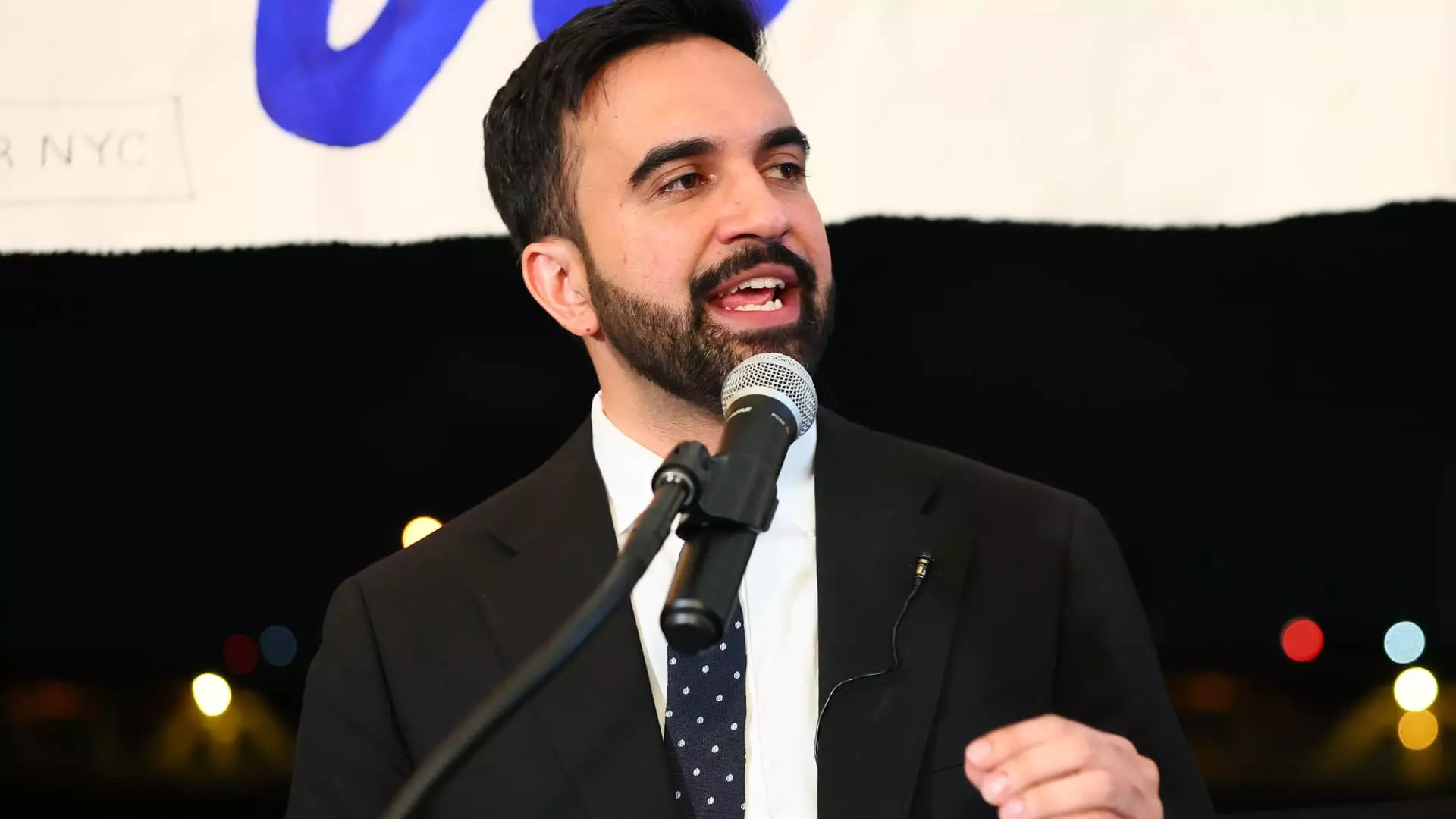The recent stock slide of Flagstar, a regional bank in New York, reflects the mercurial nature of investors who navigate the often nebulous waters of political influence on the economy. A 6% decline in the bank’s shares following Zohran Mamdani’s apparent lead in the Democratic primary for mayor of New York City serves as a stark reminder of how intertwined financial markets are with political developments. Investors cling to certainty, and when that certainty is threatened, even a hint of instability—like a proposed rent freeze—can send ripples through the market, particularly in the volatile sphere of real estate.
Mamdani’s campaign promise to freeze rent increases in stabilized apartments speaks volumes about his anticipated impact on the city’s real estate market, an ecosystem that accounts for significant portions of Flagstar’s loan portfolio. The emerging mayoral contender’s position stirs a cocktail of apprehension and speculation, as the potential freeze on rent increases has implications far beyond the living conditions of New Yorkers. It raises critical questions about the profitability and viability of multi-family rental properties, which are a substantial component of Flagstar’s financial structure.
The Real Estate Tightrope
Analysts have scrambled to assess just how detrimental this political shift could become for Flagstar. Deutsche Bank’s assessment outlines a potential exposure of $16 to $18 billion from the bank’s multifamily loan portfolio to the whims of changing rent regulations. While Morgan Stanley’s less alarming figures offer a glimmer of hope by suggesting these could drop down to between $11 and $12 billion based on stricter demand metrics, the sheer scale remains troubling.
The financial community is staring down a precipice—one where political decisions can upend not just immediate earnings but also long-term stability and growth. The fact that these multi-family loans represent about a quarter of Flagstar’s total loan book cannot be overlooked. If Mamdani’s rent freeze materializes into a prolonged policy, experts opine that the bank may find itself forced to bolster its loan loss reserves. The implications here run deep: a reliance on real estate lending can become a double-edged sword when local political climates shift.
Investor Sentiment: A Balancing Act
Investors, who previously might have looked at Flagstar with a robust attitude, are now treading lightly, weighing the potential impact of a radical policy shift against their financial ambitions. Barclays analyst Jared Shaw suggests that existing rent regulations have already tempered rental price increases below the rate of inflation, mitigating immediate fears. Still, the overarching sentiment of impending regulations looms large, underscoring the disquietude that’s permeating through the financial markets.
One must wonder how corporations championing the housing market will adapt to this newly budding ethos surrounding rental properties that prioritizes tenant stability over landlord profits. Higher corporate tax rates proposed by Mamdani, despite his limited control over such policies as mayor, add another dimension of complexity and uncertainty that can further ensnare the stock market.
The Electoral Roller Coaster
In the arena of political maneuvering, Mamdani’s ascent after a tense primary, which saw an established figure like former Governor Andrew Cuomo conceding amidst the ranked-choice voting system, illustrates the potential volatility that comes with political progressivism. The specter of another contentious election looms, with the anticipated general election pitting him against Republican nominee Curtis Sliwa and other candidates, including sitting Mayor Eric Adams. This multi-candidate race poses challenges for investors who wish for stability; political unpredictability often breeds economic nervousness.
In a city as vibrant and multifaceted as New York, the outcomes of such elections have far-reaching implications. They evoke broad societal responses that ripple out to affect the wider economic landscape, significantly impacting those tied to the real estate industry. Mamdani’s platform resonates with many—representing the voice of a changing demographic championing affordable housing and equitable policies.
What remains unresolved is the extent to which his policies may redefine relationships within the financial sector, especially for institutions like Flagstar that operate at the intersection of banking and real estate. The political climate can be a disruptive force, and in this instance, investors seeking certainty might need to brace themselves for ongoing turbulence in a landscape colored by newly emerging ideals and ideals that favor a broader economic inclusivity.

